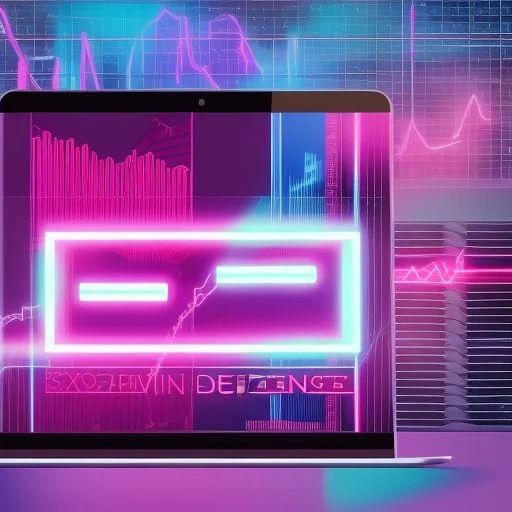DeFi Decentralized Finance Shaking Up the Conventional Financial System
The rise of decentralized finance, commonly known as DeFi, has been making waves in the financial world. DeFi represents a paradigm shift from traditional centralized financial systems to a decentralized ecosystem built on blockchain technology. In this article, we will explore how DeFi is disrupting the conventional financial system and revolutionizing the way we transact, lend, borrow, and invest.
1. Decentralization and Trustless Transactions:
DeFi operates on decentralized networks, primarily blockchain, eliminating the need for intermediaries such as banks and brokers. Smart contracts, self-executing code on the blockchain, enable trustless transactions, meaning that parties can engage in financial activities without relying on a central authority. This decentralization brings transparency, removes the need for third-party verification, and reduces the associated costs and delays.
2. Accessibility and Financial Inclusion:
One of the key advantages of DeFi is its potential to promote financial inclusion. Traditional financial systems often exclude individuals with limited access to banking services or those residing in underbanked regions. DeFi protocols, built on blockchain, are open to anyone with an internet connection, allowing individuals to participate in financial activities, such as lending, borrowing, and trading, without facing discriminatory barriers.
3. Peer-to-Peer Lending and Borrowing:
DeFi platforms enable peer-to-peer lending and borrowing without the need for intermediaries. Through decentralized lending protocols, individuals can lend their digital assets and earn interest, while borrowers can access loans by providing collateral. This disintermediation empowers individuals, reduces borrowing costs, and expands credit opportunities beyond traditional credit scoring systems, benefiting both lenders and borrowers.
4. Automated Market Making and Decentralized Exchanges:
Decentralized exchanges (DEXs) are a fundamental component of DeFi. These platforms facilitate peer-to-peer trading of digital assets, removing the need for a central authority to facilitate transactions. Automated market making algorithms and liquidity pools provide efficient and transparent pricing, ensuring fair and competitive markets. Additionally, DEXs allow individuals to maintain custody of their assets, reducing the risk of hacks and custodial failures.
5. Yield Farming and Staking:
DeFi introduces novel concepts such as yield farming and staking, which allow individuals to earn rewards or additional tokens by providing liquidity to decentralized protocols. By locking their assets in smart contracts, users contribute to the liquidity pool and earn passive income. This incentivizes participation, drives liquidity, and encourages innovation within the DeFi ecosystem.
DeFi represents a significant disruption to the conventional financial system by leveraging blockchain technology, decentralization, and smart contracts. It offers transparency, accessibility, and financial inclusion, enabling individuals worldwide to access a wide range of financial services without relying on intermediaries. However, it is crucial to note that DeFi is still an emerging industry with risks, including smart contract vulnerabilities and market volatility. As DeFi continues to evolve and mature, it has the potential to reshape the financial landscape, empowering individuals and democratizing finance for the better.

